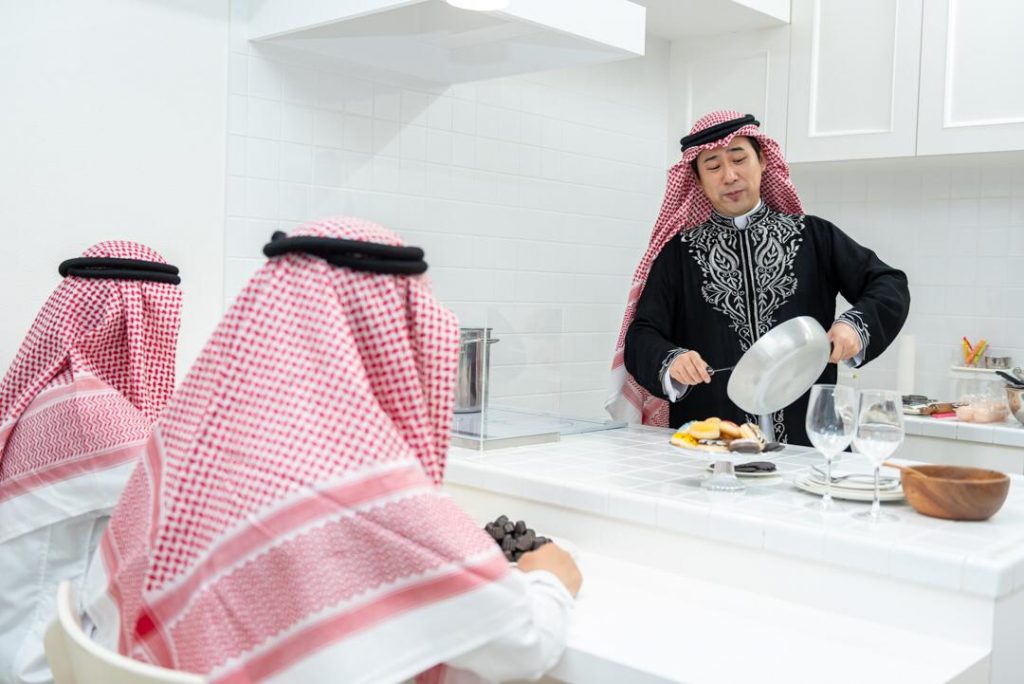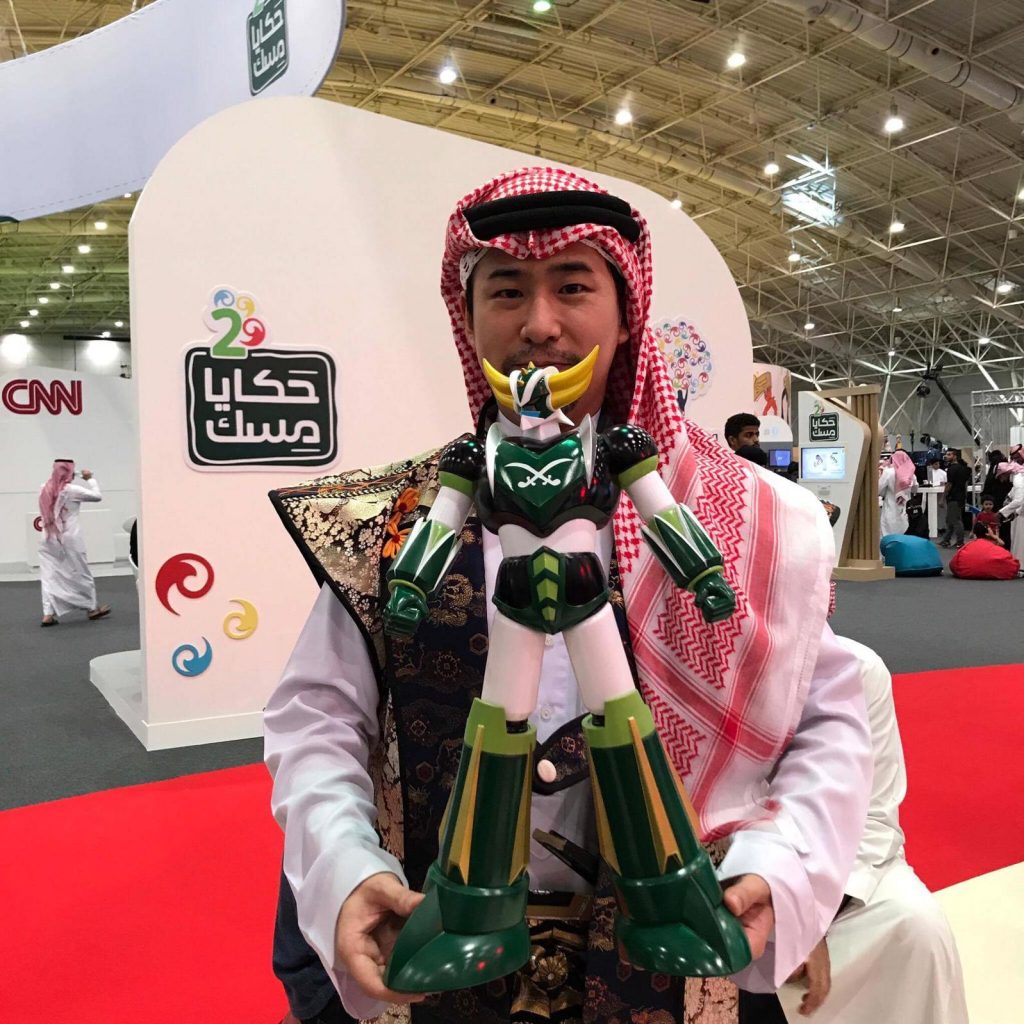











Ehtesham Shahid
“I gain weight in the Gulf and lose it in Japan.” Japanese Akira Takatoriya, who has started calling himself Shams Qamar after his many visits to the Arab world, has several such observations and experiences in the region.
He calls Arab hospitality “direct and powerful,” while Japanese hospitality is “indirect and a little bit silent.” He is so consumed by Arab food, culture and dress that he wears his passion on his sleeves.
Takatoriya’s Instagram page is full of his photos in kandoora and thobe (traditional Arab dress), in the Arabian Desert and drinking Vimto, arguably the most popular drink in the Arab world.
But it is more than just fun for him. He is very particular about wearing the dress right, and is keen to better his Arabic-speaking skills. “My other important interests are (the dishes) kabsa and maqboos,” he said.
Born and raised in the southern Japanese city of Oita, Takatoriya moved to Tokyo after high school. He graduated from Tsukuba University with a history major.
“Even as a student, I had a lot of interest in the Middle East and Central Asia,” he said. Life changed for him at the age of 27 when, while working for Hitachi — one of the biggest Japanese electronics companies — he got a chance to visit Saudi Arabia as part of the Saudi-Japan youth exchange program.
Since then, there has been no looking back regarding Takatoriya’s fascination with all things Arab.
He has worked in Saudi Arabia, the UAE, Jordan and Palestine, and despite being based in Tokyo, he visits the region as often as he can.
Takatoriya shares an experience that helped shape his love for Arab culture. “When I worked in Japan, the alcohol problem would annoy me all the time. It was considered cool for men to drink, which I didn’t like. They’d go to the extent of saying, ‘if you’re a man, you must drink’,” he said, hastening to add that this is not the case anymore.
This, he discovered, was not the requirement in Saudi Arabia, his first tryst with the Arab world.
“We only drink Arabic coffee with dates and it’s so comfortable, relaxing and easy to make friends,” he said, adding that Saudi men “welcomed the fact that I didn’t drink alcohol.”
That was to be the ice-breaker Takatoriya needed to get closer to the people and their culture. This proved to be just the beginning.
He took a liking to dressing publicly as an Arab. Food came next, and Takatoriya summed up the experience as: “Dates, dates, dates, coffee, coffee, coffee, kabsa, kabsa, kabsa, halawa, halawa, halawa.”
These were outward expressions of his more deeply ingrained sense of belonging to Arab culture. He pinpoints it to the history of Saudi Arabia and the Arab world in general.
“My major was history, and I have a lot of respect for the Arab kingdoms, how they survived and secured independence from the Ottoman and British empires,” he said.
Takatoriya has a list of things he is yet to accomplish. “I should study many more words and expressions in the Arabic language, and hope to be a bridge between Japan and the Arab countries,” he said.
According to him, there are stereotypes and little information on both sides. “I hope to end them, give the Japanese people correct information about the Arab world and vice versa,” he said.
Takatoriya gets a little cheeky about some elements of truth behind some of the stereotypes. “Wasta (connection), yes vitamin W, is very effective in Japanese culture too. We call it cone (short for connection),” he said.
But he points out that the concept of schedule and punctuality is different in the two cultures. “Japanese people care even about one-minute delay. It’s sometimes too punctual and inflexible. In the Arab world, they often delay but solve problems perfectly,” he said.
“It’s not just about positives and negatives or right and wrong. That’s why stereotypes lead to misconceptions that we can all avoid.”